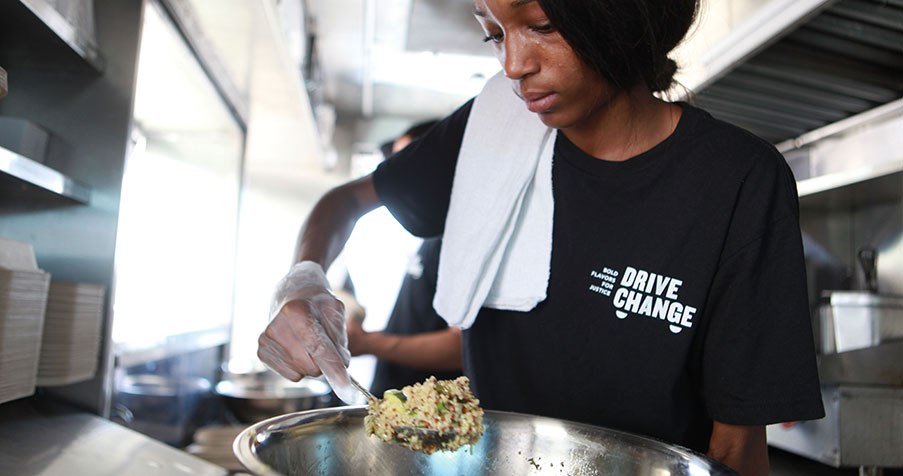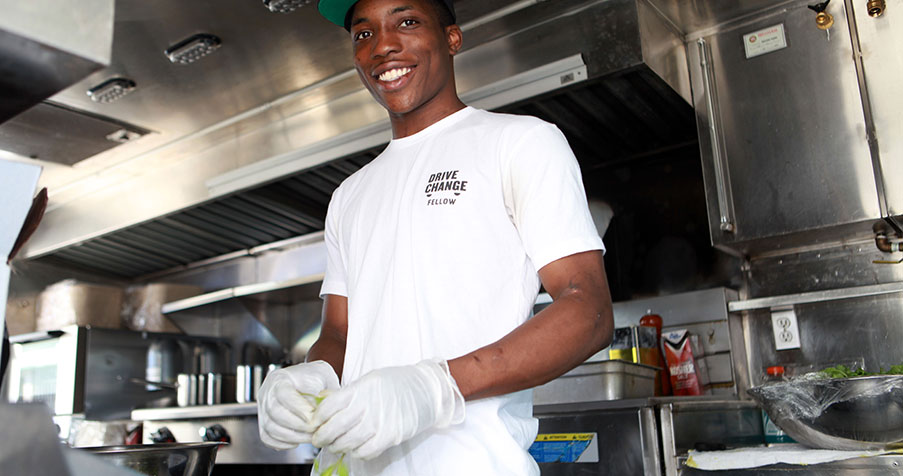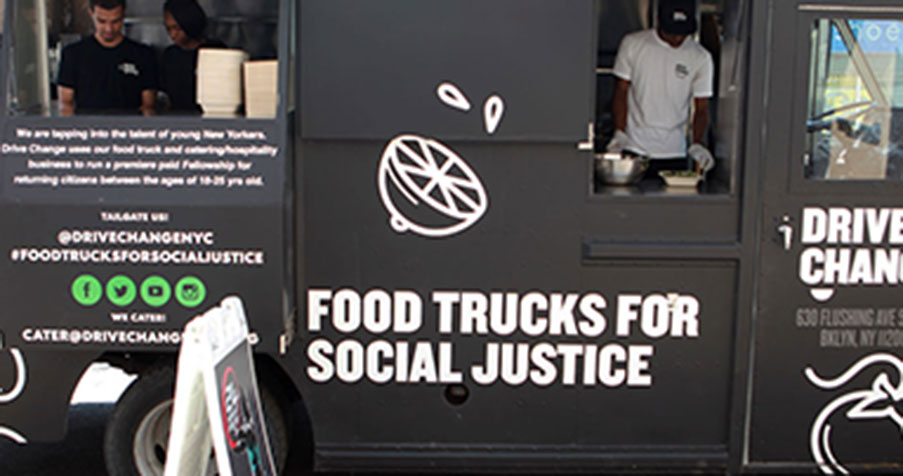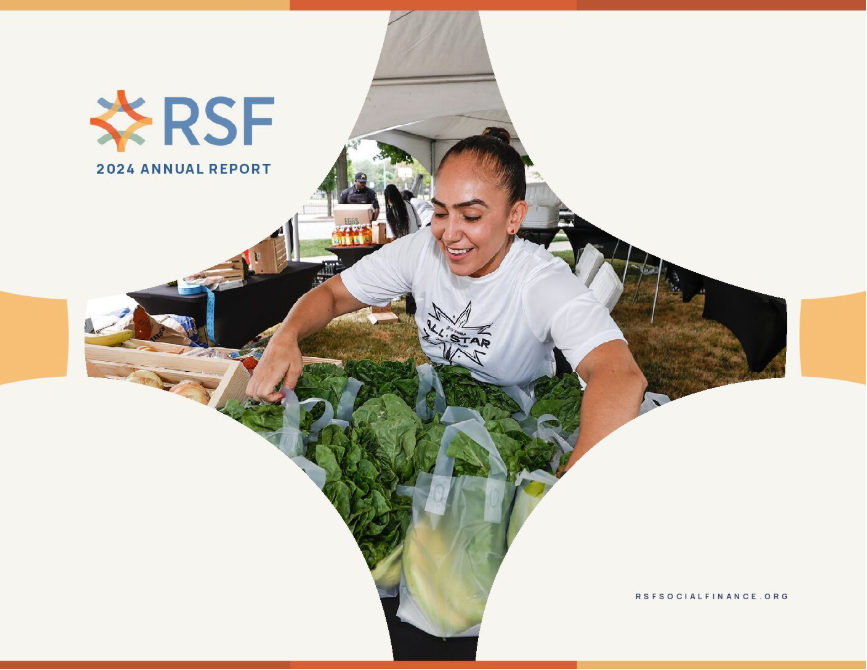As an English teacher at the high school in New York City’s Rikers Island jail complex, Jordyn Lexton saw how dehumanizing incarceration is for young people. Lexton (who uses the pronouns they/them) saw broken tables, desks, and chairs. They saw holes in the walls stuffed with trash. They saw officers beat up students. They saw kids who had to decide instantly “whether they were going to be predator or prey.”
What concerned Lexton most was how little hope these students had for the future. Many of them were in jail as the result of a criminal justice system with a bias against communities of color—Lexton describes it as a grandchild of slavery. And when the young people left Rikers, they’d often have convictions on their records, which would make it nearly impossible to find work or start a new life.

Lexton was so distressed by the injustice they witnessed that they quit their teaching job and in 2014 founded Drive Change, a New York–based nonprofit that offers formerly incarcerated young adults opportunities in the hospitality industry—and that works to change inequities within the industry itself.
“What’s really exciting to us is that Drive Change has a bidirectional model,” says Casey Johnson, RSF relationship manager. “They not only provide formerly incarcerated youth with the skills and holistic support they need to get back on track, they’re also working with restaurants to expose a system of biases and create a workplace environment where those young people can feel supported and safe.”
It all started with a food truck
When Lexton worked at Rikers Island, from 2009 to 2012, New York was one of only two states where the age of adult criminal responsibility was 16 years old.
That meant Lexton’s students were living among an adult prison population. But even in this bleak situation, Lexton noticed a ray of hope: “The culinary arts class was one of the only places where people were thriving and connecting and building new skills.” Inspired, Lexton decided to start a food truck business to provide job training for these returning citizens, or “returners”, young people ages 18 to 25 returning to society.
First, Lexton worked on the Kimchi Taco Truck to learn the business. They also worked with several social justice organizations and rallied behind New York’s Raise the Age initiative, which in 2018 led the state to raise the age of criminal responsibility to 18.

From the start, returners coveted a place in the Drive Change fellowship program, in large part because it offers a wage of at least $15 an hour. Paying Fellows a living wage allows them to build financial stability, which is key to a successful return. The nonprofit initially worked with 10 Fellows in a yearlong program. After two months learning basic kitchen and hospitality skills, the Fellows spent two days a week in Drive Change’s prep kitchen, two days on its food truck, and one day in the classroom learning soft skills such as time management and communications.
“All we’re doing is creating the kind of soil in which returners can tap into their energy and inner potential and grow.”
Jordyn Lexton
But the food truck could only hold four people at a time, which limited the number of Fellows Drive Change could train. So a year and a half ago, the organization changed its model and began to work with restaurants as job placement partners. With the new eight-month Hospitality for Social Justice (HSJ) program, Drive Change expanded the number of Fellows it could accept. Now, following the two-month training, the Fellows work four days a week at a restaurant (or in the food truck) and spend one day back at Drive Change enhancing their professional development.
The program also benefits the restaurants—and an industry that’s ripe for reform. Not only have #MeToo accusations roiled the restaurant world, but it is known for systemic racial bias: workers of color earn less than their white peers and suffer from other forms of discrimination. Restaurant participation in HSJ requires a commitment to a just and equitable workplace culture; managers must apply to be in the network and attend a daylong training addressing “power and privilege and the implicit bias that exists in the industry,” says Lexton. Thereafter, managers participate in weekly coaching sessions to troubleshoot challenges.
Funding brings opportunities—and a challenge
In summer 2018, Drive Change received a $2.6 million grant spread over three and a half years from the Manhattan district attorney’s Criminal Justice Investment Initiative. The grant doubled Drive Change’s budget, but also created a problem: the nonprofit would have to cover its expenses before getting reimbursed. “If we couldn’t find a way to support a healthier cash flow,” says Lexton, “then, quite honestly, we weren’t going to make it.”
Lexton sought advice from the Kohlberg Foundation, a big supporter, for advice about getting a loan. Advisors there suggested asking RSF.

Right away, RSF was excited. “The program’s transformative work is not just in the Fellows’ skills development but also in creating the social-emotional environment in which to support them,” says RSF’s Johnson. “That’s rare.”
Drive Change was in such an early stage as a business that it was important to find a guarantor who would be “willing to stand behind them and potentially offer philanthropic support to get them through their proof-of-concept phase,” Johnson says. Kohlberg stepped in, offering a $250,000 loan guaranty.
In October 2018, RSF issued a $350,000 revolving line of credit to Drive Change.
The breathing room to build a sustainable model
The loan made it possible for Drive Change to stay in business. “It’s impossible to overstate this,” says Lexton. “We wouldn’t be in existence if not for the ability to pull down from that line of credit.”
Drive Change’s staff grew from six to eight people, and the fellowship program expanded from 10 to 36 Fellows a year. The hope is to expand that to 75 Fellows soon.
“The program’s transformative work is not just in the Fellows’ skills development but also in creating the social-emotional environment in which to support them. That’s rare.”
Casey Johnson
Just as important, Drive Change now has the breathing room it needs to develop an income-generating model, providing a service that restaurants will pay for. “We’re trying to get restaurants to recognize that if you have a healthier and more equitable workplace, it will increase your retention and lower operational costs,” says Lexton.
As for the Fellows, Drive Change is changing lives. Of the 55 youths who have participated in the program, 80 percent are still employed. Some work in the restaurant industry; others found jobs in different industries.
Lexton doesn’t like to take credit for their success: “We really feel strongly that all we’re doing is creating the kind of soil in which returners can tap into their energy and inner potential and grow.”


